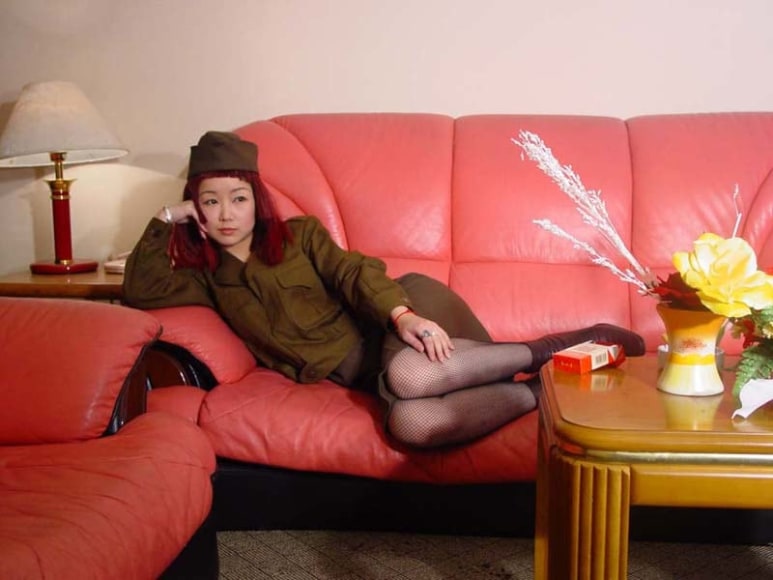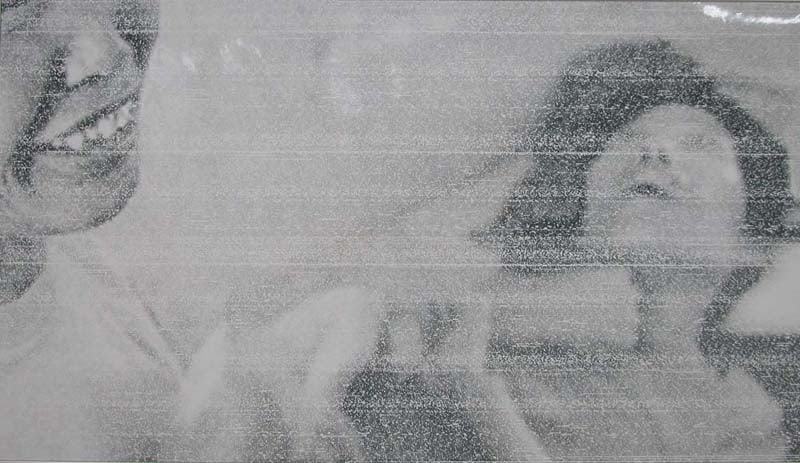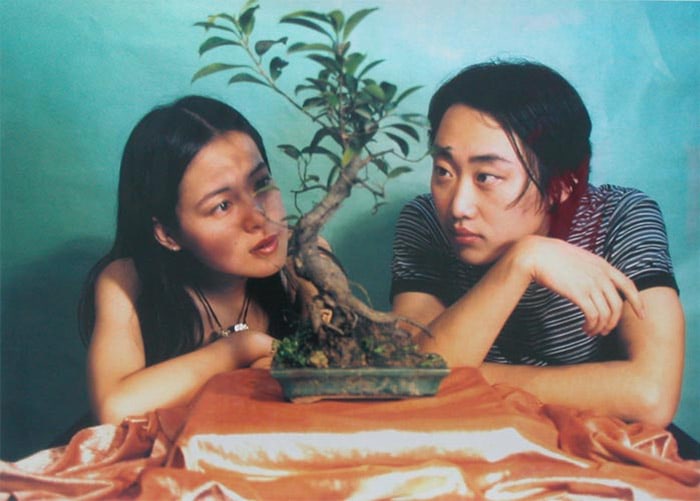This exhibition curated by Yang Shin-Yi invites four emerging young Chinese artists - Cao Fei, Liang Yue, Xu Zhen, and Yang Fudong - to investigate the hidden “feverish unconscious” occurring in the technologically driven environment of China today.
China opened its doors to the global community in the early 1980’s only to close its doors again for two years after the Tiananmen incident. Since the end of 1992 they have reopened with an accelerated and ‘frenzied’ pace through constant contact with the global consumption of technology. Within a short time span, socialist China has transformed its cultural identity and social structure to adapt to Western consumerism and the global consumer culture, impacting the way the Chinese masses regard themselves as global citizens. It is in the wake of this new globalization that contemporary Chinese artists are driven to experiment, striving to create and document this historical transformation which is unprecedented in Chinese history. At the nexus lies an underlying fearfulness which does much to explain contemporary Chinese art. It can be described as “feverish unconscious” where great efforts to quickly absorb and disseminate new information are haunted by the socialist past of revolutionary culture, revealing a suspicious response to the globalized future.
Yang Fudong and Xu Zhen are both living in Shanghai and were both recently included in the Venice Biennale. Yang Fudong participated in the 11th Documenta (Kassel, 2002). He is regarded as one of the most important video artists of this generation, attracting attention at the Venice Biennale with his narrative documentary capturing the daily life of a young couple with their attitudes towards love, family, career and their future ideals. Xu Zhen creates scenarios as in his video Scream 1999 in which, uttering a strange cry in various public spaces, he captures the unexpected reactions of passers by posed by such acts.
Cao Fei and Liang Yue are considered by many the most interesting female video artists working today. Cao Fei has chosen video to experience interactive performance. In her video Chain, 2000 which was shot without a script but adopts imagery from a TV program on medicine, she creates a satirical surgical performance where ludicrously made up actors donning medical garb are asked to perform movements in a mechanical and dance-like fashion. Here imitativeness, contradictoriness, absurdity and truthfulness, meaninglessly generate serious resistance and conflicts in what is normally a particularly difficult and personal human experience. In the controversial exhibition entitled “Fuck Off” held in Shanghai in 2000, Liang Yue a member of an avante garde musical group exhibited her three-minute video documenting the simplistic daily ritual of someone showering which she then transferred into 130 pictures.
These artists will be included in a group exhibition entitled China Now which is curated by Barbara London and will be held at MoMA Film at The Gramercy Theater in the middle of February.
前波画廊2004年1月15日将举办《发狂的潜意识─中国现代数字文化》的群展。展览策划人杨心一邀请了新崛起的四位艺术家─曹斐,梁玥,徐震,和杨福东,从他们的作品中发掘当前中国以科技为主的社会环境中所隐藏的“发狂的潜意识。”
八十年代初期刚准备迈向全球而打开国门,由于天安门事件而再一次关闭了两年。自1992年起, 中国再次实行对外开放,与世界不断接触,并且以飞快甚至近乎“疯狂”的速度发展。在短时间内,社会主义中国的文化本体与社会结构逐渐转变为以消费者利益为主的形态,中国人民同时也视自己为消费者群体的一份子。中国当代艺术家在这个新全球化的大环境下,积极努力地尝试记录这个在中国历史上史无前列的转变过程。同时他们心底又存在着一种担心害怕, 这种意识足以解释中国的当代艺术。之所以称之为“发狂的潜意识”是因为在不能被遗忘的社会主义革命文化的经历下,同时又对现代信息化不顾一切地吸收和传播,产生了一种对全球化猜疑的态度。
杨福东和徐震都生活在上海,而且参加了威尼斯双年展。杨福东在2002年还参加了卡塞埃文献展。他的叙事性纪录片记录了一对年轻情侣的日常生活与他们对爱情,家庭,事业和未来的理想。他被认为是新一代影像艺术家中最重要的一位。在影像作品《叫喊》中,徐震在公共场合发出奇怪的叫喊声,并拍摄下过路人这个突如其来的声音的反应。
曹斐和梁玥被认为是最引人注目的两位年轻女性影像艺术家。曹斐用影像去体验参与性行为艺术中的互动。她的《链》(2000)没有任何剧本,却采用了介绍医学的电视节目的方式。一群男演员穿着滑稽的服装,机械般地移动着身体,模仿当前流行的舞蹈。模仿,矛盾,荒缪和忠诚,不过是有组织的决策而已,毫无意义地成为一种严对抗和考验。2000年在上海举办的具有争议的展览《不合作方式》中,梁玥作为前卫音乐的一员,展出了一部三分钟的录像。这个记录了一个人洗澡-最简单的日常生活-之后拆解成130张连贯的图片。
这几位艺术家的作品也会在二月中旬纽约现代博物馆的Gramercy Theater中,由Barbara London策划的《现代中国》中展出。



